Our team
The Centre provides cross-School leadership and is the focal point of UWA's externally facing identity in the water and spatial sciences. The Centre is hosted within the UWA School of Agriculture and Environment.
On this page
Centre Co-Directors
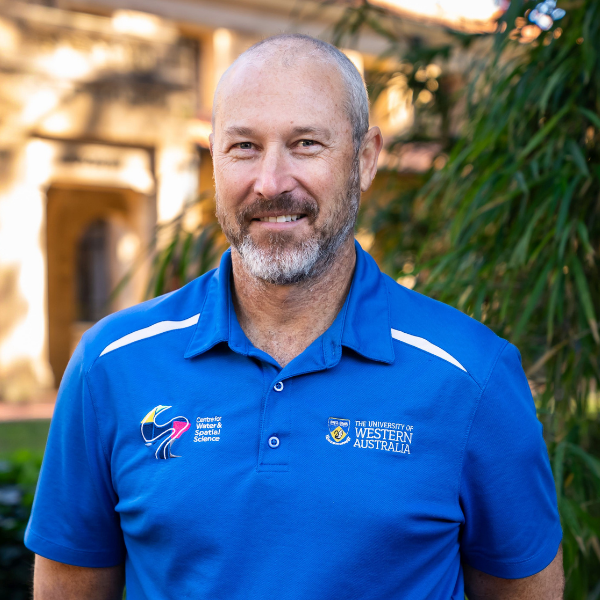
Professor Nik Callow
Professor Nik Callow, co-director of the Centre for Water and Spatial Science at UWA, is a researcher in hydrology, geomorphology, GIS, and remote sensing. His work is focused on understanding Australian landscape processes. He manages that CASA-licensed drone remote sensing group and is UWA Chief Remote Pilot and recognised as a Certified Environmental Practitioner Geomorphology Specialist. He leads numerous multidisciplinary and strategic research collaborations with partners across industry, government, regulators, and not-for-profits, and active in PhD and research higher degree training, undergraduate and postgraduate teaching.
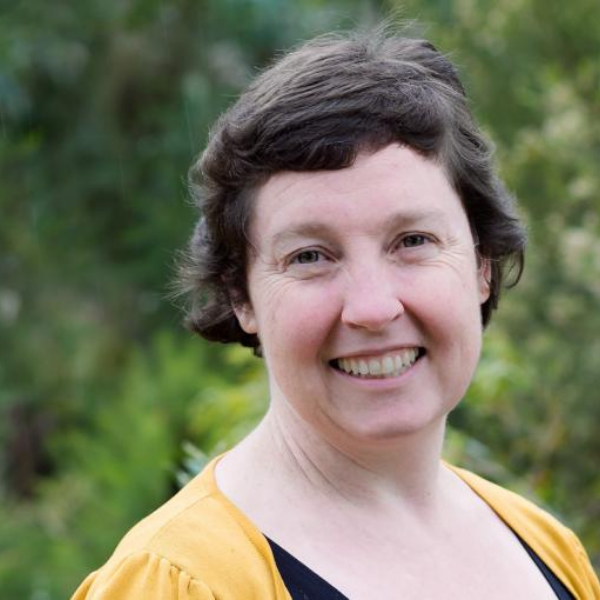
Professor Sally Thompson
Professor Sally Thompson, co-director of the Centre for Water and Spatial Science at UWA, specialises in surface hydrology and ecohydrology. Her research explores the links between life and water and their implications for people, ecosystems, and water resources. Sally's work has been recognised with the American Geophysical Union Hydrology Early Career Award and the US National Science Foundation CAREER award. She is an Editor-in-Chief of the Journal of Hydrology, and leads both local and national, multidisciplinary research collaborations.
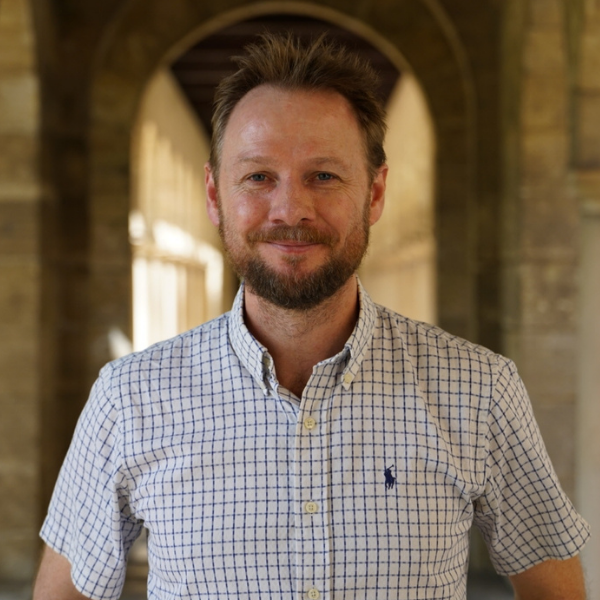
Professor Matt Hipsey
Professor Matt Hipsey, co-director of the Centre for Water and Spatial Science at UWA. He leads the Aquatic Ecodynamics research group at UWA’s School of Agriculture and Environment. His multidisciplinary team specialises in water quality and aquatic ecosystem model development, with applications to wetlands, lakes, rivers, and estuaries. With over 60 journal articles and 20 conference papers on modelling aquatic ecosystems, Matt is a major developer of widely used modelling software packages. His work focuses on understanding the impacts of climate change and land-use change on environmental processes and habitats, providing valuable insights for managing aquatic ecosystems.
UWA Academics
We're proud to collaborate with many academic experts across UWA, covering a broad range water and spatial sciences issues. The Centre is hosted within the UWA School of Agriculture and Environment (SAgE). Our centre coordinates, promotes, and profiles the critical mass of world-class research capability and capacity at UWA by drawing together UWA scientists across schools including SAgE, School of Earth and Oceans and School of Engineering, Civil, Environmental and Mining Engineering.

Dr Amandine Bosserelle
Click to expand
Dr Amandine Bosserelle is a Lecturer in the Master of Hydrogeology program at the School of Earth and Oceans, University of Western Australia. She is an experienced computational modeller with a passion for hydrogeological systems and subsurface investigations. She is interested in exploring groundwater processes in coastal and urban environments. Her research areas include the dynamics of shallow groundwater in surficial aquifers and the assessment of changes in nearshore shallow groundwater in response to sea-level rise. She uses spatial analysis, analytical and numerical modelling and different field methods to characterise flow and transport processes, including geophysics
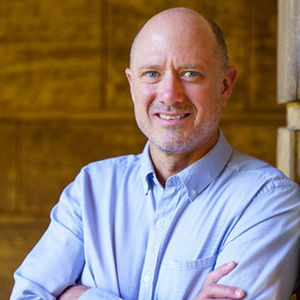
Associate Professor Bryan Boruff
Click to expand
Associate Professor Bryan J Boruff is a researcher at the UWA School of Agriculture and Environment at The University of Western Australia (UWA). Bryan's expertise is in the application of Geographic Information Systems (GIS) and Remote Sensing technologies to the study of environmental hazards and climate change impacts. Over the past decade, Bryan's research interests have expanded to encompass a range of environmental management issues in agricultural production, population health, urban planning and sustainable livelihoods. He has extensive experience working in developing nations in multidisciplinary settings with academic, private and government stakeholders.
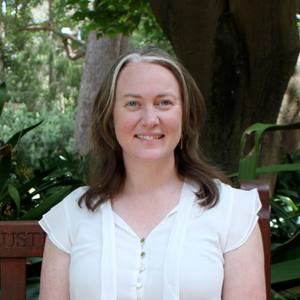
Dr Caitlin Moore
Click to expand
Dr. Caitlin Moore is a Senior Lecturer at the UWA School of Agriculture and Environment. She is a leading researcher in ecosystem processes, focusing on how native and managed ecosystems function from leaf to landscape scale. Caitlin's work involves improving measurement infrastructure for faster monitoring of ecosystems in Western Australia, enhancing bioenergy sustainability, and advancing food security. Caitlin is also a regional ambassador for Australia's Terrestrial Ecosystem Research Network (TERN), supported by the federal government through the National Collaborative Research Infrastructure Strategy (NCRIS). She has collaborated with senior scholars globally, leading to significant advancements in her field. She continues to contribute to the understanding of ecosystem response to climate variability.

Dr Caroline Mather
Click to expand
Dr Caroline Mather, a Lecturer in the UWA School of Agriculture and Environment, is a multidisciplinary scientist with expertise in Earth, Environmental and Climate science. Her research is focused on understanding past environmental and climatic change, in particular hydroclimatic variability, surface water – groundwater interactions, and the response of landscapes and water sources to shifts in climatic regime. Caroline is also interested in human-environment interactions and recently, her work has focused on understanding environmental change and resource availability (including freshwater resources) that has influenced human occupation in Australia. Her research aims to provide important insights into past adaption to climate change, as well as producing records essential for improving climate predictions and environmental management. Caroline is also an Associate Investigator in the ARC Centre of Excellence for Indigenous and Environmental Histories and Futures.

Professor Jason Beringer
Click to expand
Professor Jason Beringer researcher at the UWA School of Agriculture and Environment, is a global leader in understanding how ecosystems respond to climate change. He has developed the LEAPI group, a multidisciplinary team studying the Australian terrestrial biosphere's response to climate and land use change. His work focuses on major ecosystem cycles of carbon and water that provide crucial tools for sustainable landscape management. His research excellence is demonstrated by his significant contributions to policy-relevant questions about the future impacts of change. He is a founder and continued leader of NCRIS Terrestrial Ecosystem Research Network and the Australian Flux tower network (OzFlux).
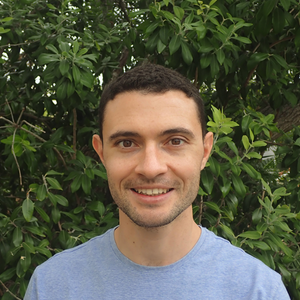
Dr John Duncan
Click to expand
Dr. John Duncan, a Research Fellow at the UWA School of Agriculture and Environment. John’s research field is in geospatial software development, remote sensing, and GIS. His research focuses on using satellite images and other socio-economic, climatic, and environmental datasets to monitor and detect change in agricultural and urban landscapes. He has developed the Advanced Spatial Analysis unit, teaching students' geospatial data science skills. His collaborations span across research, government, not-for-profit, and private sectors, with experience in Australia, South Asia, Sub-Saharan Africa, and Pacific Island Countries. He also delivers GIS and geospatial data analysis training for various audiences.
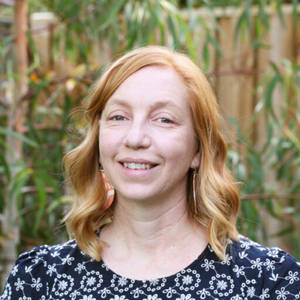
Associate Professor Natasha Pauli
Click to expand
Associate Professor Natasha Pauli is a researcher at UWA School of Agriculture and Environment. A research leader in human-environment interactions and biodiversity management, she has a rich background in environmental science and conservation policy. Her interdisciplinary research integrates scientific data and local knowledge, focusing on the relationships between people and the ecological resources that sustain them. Her work aims to demonstrate positive ways for people to integrate nature and ecosystem processes into functioning urban, rural, and coastal systems.
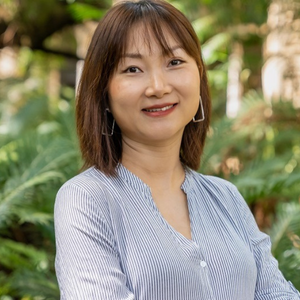
Dr Qiaoyun Xie
Click to expand
Dr. Qiaoyun Xie, a Lecturer at the School of Engineering, Civil, Environmental and Mining Engineering, The University of Western Australia, is a global research leader in vegetation dynamics monitoring using remote sensing and GIS. Her lab’s research provides solutions that help humanity adapt to reliance on plants for food, fuel, and clean air. Qiaoyun’ s significant contributions to this field are evidenced through her publication record in prestigious journals and textbooks, and her leadership in several multidisciplinary research collaborations. She has also developed Australia’s first vegetation phenology products at 500m resolution using satellite data. Her ultimate aim is to prepare for biogeography in future climates.
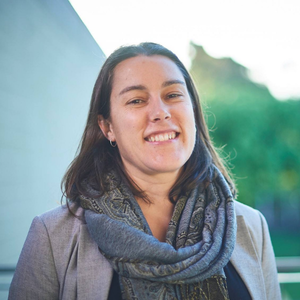
Dr Sarah Bourke
Click to expand
Dr. Sarah Bourke is a Senior Lecturer at the School of Earth Sciences, University of Western Australia. As a Hydrogeologist, she specialises in environmental tracers and surface water-groundwater interaction. She coordinates the Master of Hydrogeology program and has a demonstrated capacity to deliver high-quality outcomes through collaborative research projects. She is a passionate advocate for Hydrogeology practice, research, and training, with a focus on understanding responses of groundwater systems to changes in climate and human groundwater use. She is the Vice Chair of the Western Australian chapter of IAH and the Regional Vice-President for Australasia and the Pacific.
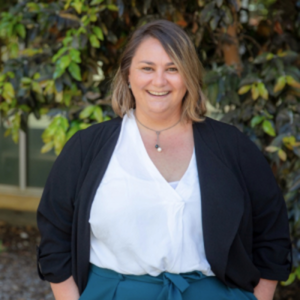
Dr Sharyn Hickey
Click to expand
Dr. Sharyn Hickey is a Senior Lecturer at the UWA School of Agriculture and Environment, specializing in spatial ecology and geospatial sciences applied to marine and coastal environments. Her research utilizes remote sensing and geospatial models to investigate environmental change, with a focus on monitoring benthic marine and coastal vegetation. Dr. Hickey has spearheaded numerous multidisciplinary collaborations aimed at monitoring and detecting changes in marine habitats, including mangroves, macroalgae, seagrass, and coral reefs. She places particular emphasis on Western Australia's shallow and coastal marine ecosystems, leading ongoing projects to map mangroves and intertidal habitats, study marine habitat changes along the coast, and assess their relationship with fisheries. Additionally, Dr. Hickey investigates the impact of heatwaves on marine habitats and associated fisheries. Through her research, Dr. Hickey contributes valuable insights to the understanding of marine and coastal ecosystems, informing sustainable management practices for coastal regions.
Interested in collaborating or working with us?
We love hearing from members of industry, research groups, researchers, and students who are interested in learning more and/or working with us.
Find an expert
Contact us or search the UWA profile database to connect with our network of researchers, who are experts in their field.
Our research, casual and technical staff
You’ll find our research, casual, and technical staff expertise.
Our collective knowledge spans across various disciplines, reflecting our commitment to exploring diverse perspectives and tackling complex challenges from multiple angles.
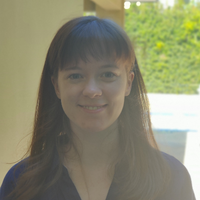
Amy Stone
UWA School of Agriculture and Environment
Click to expand
Amy Stone is a research assistant in the Centre for Water and Spatial Science. Her research interests are using remote sensing technologies to study marine and coastal habitats, in particular the development of robust methods through Geographic Information Systems (GIS). Recent research projects have focused on the use of satellite and drone data in monitoring coastal habitats such as mangroves, saltmarsh, and coral reefs.
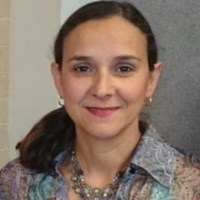
Ana Catarina Limede Dos Santos Silva Singh
School of Engineering, Civil, Environmental and Mining Engineering
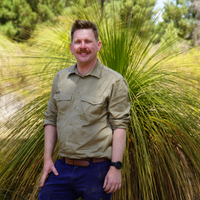
Andrew Van de ven
School of Engineering, Civil, Environmental and Mining Engineering
Click to expand
Andrew van de Ven is a graduate of the University of Western Australia holding a Master’s of Professional Engineering (Environmental Engineering). In his role as senior technician he provides technical support and insight to students, PhD candidates and research activities alike for those wishing to undertake field campaigns and monitoring activities. He has collaborated with many projects from the Centre for Water and Spatial Sciences and enjoys utilising the multi-disciplinary techniques across the wide swath of environmental sciences.
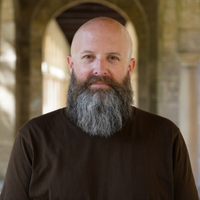
Brendan Busch
UWA School of Agriculture and Environment
Click to expand
Brendan Busch is a Senior Research Engineer for the Aquatic EcoDynamics (AED) Research group at the University of Western Australia (UWA). Mr Busch’s primary focus is on data engineering and visualisation of complex numerical models. In his current capacity, Mr Busch is tasked with designing and creating data and model analytics solutions for environmental assessment. His specialization lies in MATLAB, but he also utilizes a variety of languages and platforms within the realm of analytics and Geographic Information Systems (GIS). Mr Busch also works with the Western Australia Marine Science Institute (WAMSI) as the technical lead in the development of the Shared Environmental Analytical Facility (SEAF)—a cloud-based platform that facilitates the sharing and curation of environmental data for industry stakeholders and regulators being designed in conjunction with Microsoft, PwC and other industry leading players.

Casper Boon
UWA School of Agriculture and Environment
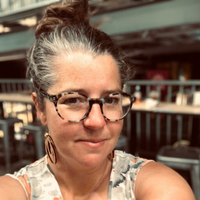
Dr Kerry Bardot
School of Earth Sciences
Click to expand
Kerry Bardot is a Research Fellow in Hydrogeology and is part of Earth Sciences and the Centre for Water and Spatial Science at the University of Western Australia. She has recently completed her PhD on incorporating structural elements, such a faults, pinchouts and intrusions, into groundwater models. With a keen focus on spatial discretisation, she uses MODFLOW 6 (Flopy) and unstructured grids for all her modelling projects. She is passionate about creating workflows to enable groundwater models to remain updatable as well as capable of adequately addressing uncertainty.
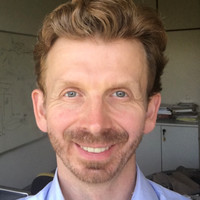
Dr Konrad Miotlinski
School of Engineering, Civil, Environmental and Mining Engineering
Click to expand
Dr Konrad Miotlinski has a Master’s degree in Geology (2002) and PhD in Earth Sciences (2008) from University of Silesia, Poland. Experienced in applied water resources and quality investigation projects to facilitate drinking water provision across Europe, Australia and South America. In Australia he has been involved in numerous projects on freshwater storage in aquifers. Konrad believes that a carefully selected combination of field and lab experiments along with numerical modelling approaches is a key to improve management of freshwater resources. He widely uses computer techniques in teaching and research.
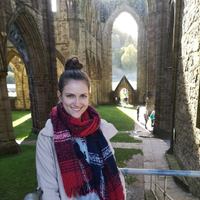
Dr Malvina Chmielarski
UWA School of Agriculture and Environment
Click to expand
Dr. Malvina Chmielarski, a Research Fellow at the UWA School of Agriculture and Environment, Malvina’s PhD thesis focused on quantifying long-term groundwater recharge in transient environments using environmental tracer data. She applied novel groundwater age interpretation methods to data collected from the Pilbara region in northwestern Australia. Her collaboration with various mine companies aims to inform sustainable groundwater management practices in the Pilbara.
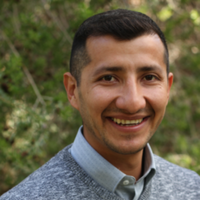
Roberto Lujan Rocha
UWA School of Agriculture and Environment
Click to expand
Roberto Lujan Rocha is a Senior Research Officer and PhD candidate at the University of Western Australia, where his affiliation with the Australian Herbicide Resistance Initiative (AHRI) and the Centre for Water and Spatial Science reflects his dedication to sustainable agriculture. Mr. Lujan Rocha's research leverages technology to improve weed management practices, ultimately contributing to a more sustainable future for our planet. His interests are centred on the use of geographical information systems, remote sensing, and machine learning. Mr. Lujan Rocha is currently engaged in projects that are exploring ways to improve water quality to enhance the effectiveness of herbicides and devising innovative remote sensing techniques for identifying and forecasting weed distributions across extensive farming areas in Western Australia.

Santiago Gil Escudero
UWA School of Agriculture and Environment
Click to expand
Santiago Gil Escudero is a Graduate Research Officer at the University of Western Australia, affiliated with the Aquatic Eco Dynamics Research Group within the Centre for Water and Spatial Science. His work focuses on leveraging computational tools to predict how changes in land use, climate, and management actions impact freshwater and coastal ecosystems, ultimately supporting more effective environmental management decisions. His primary research interests lie in the application of Geographic Information Systems (GIS), data management, and hydrodynamic modeling to address complex environmental challenges.
Currently, Mr. Gil Escudero is involved in projects related to pollutant tracking in rivers and coastal estuaries in Queensland, the calibration of a hydrodynamic model for a lake in Tasmania, and the development of a hydrodynamic model to assess microclimatic parameters in mangrove ecosystems.
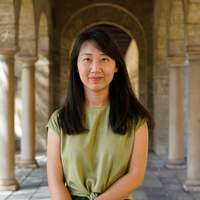
Sherry Yi Zhai
UWA School of Agriculture and Environment
Click to expand
Sherry Zhai is an ecologist and environmental scientist. Her research interests stem from the desire to understand how environmental processes influence the distribution and abundance of living organisms, and to employ a multidisciplinary approach to provide insights for management strategies amidst the challenges posed by climate and land-use changes. Drawing on her expertise in conservation biology and environmental modelling, she has worked on a variety of projects spanning diverse ecosystems with a primary focus on aquatic habitat modelling.
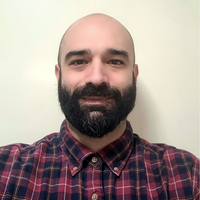
Dr Stanley Mastrantonis
UWA School of Agriculture and Environment
Click to expand
Dr Stanley Mastrantonis has applied experience with remote sensing, machine learning, decision tool development, and precision agriculture. He completed his PhD on geospatial modelling with UWA and Alcoa Australia, focusing on land-use optimisation for the Northern Jarrah Forrest. Dr Mastrantonis’s first post-doctoral appointment was at the Centre for Crop Disease Management at Curtin, focusing on precision agriculture and farm water demand, where he was involved in the Regional Drought Resilience Plan, On-Farm Experimentation, and On-Farm Water Demand research collaborations. Now at UWA, Dr Mastrantonis collaborates with AIMS and DPIRD on remote sensing applications for monitoring coastal environments. He has a passion for computer vision, geospatial analysis and software.

Warin Chotirosniramit
UWA School of Agriculture and Environment
Click to expand
Warin Chotirosniramit is a research analyst specialising in the application of GIS and machine learning to extract insights from remotely sensed data. His focus lies in leveraging the combination of spatial science and artificial intelligence to address challenges related to climate change mitigation and adaptation. Mr Chotirosniramit is researching the use of cutting-edge computer vision models for classifying residential (re)development types from high-resolution aerial imagery, laying the foundation for further investigations into how different forms of residential (re)development influence urban heat patterns and offering valuable insights for shaping urban planning strategies aimed at creating cooler cities amidst a warming climate.
Centre administration support

Liena Fordham
UWA School of Agriculture and Environment
Click to expand
Liena Fordham is the Centre Team Leader at the Centre for Water and Spatial Science (CWSS) at The University of Western Australia, where she plays a key role in supporting the co-Director team in driving the Centre’s growth and development. She oversees all operational functions, while aligning day-to-day activities with the Centre's long-term strategic goals and reporting.
With over 18 years of experience in administrative support, stakeholder engagement, project coordination, and event management, Liena’s career has spanned roles in higher education, logistics, and client services, where she developed strong skills in operational management, communications, and cross-sector engagement. Since joining CWSS in 2022, she has played a key role in projects such as WaterSmart Dams, including the launch of the Water Evaluation Platform (WEP). Her work has included leading media production, drone capture, interview coordination, and the creation of digital resources to support farmers and water managers.
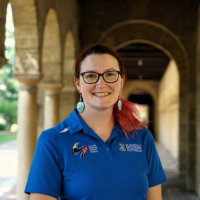
Emma Gill
UWA School of Agriculture and Environment
Click to expand
Emma's academic journey led her to pursue a Master of Science Communication at The University of Western Australia (UWA), where she currently serves as a Communications Officer with the Centre for Water and Spatial Science. With an honours degree in Marine Biology, Emma's diverse background includes experience working with NGOs, conservation organisations, consultancies, and researchers. Her eight-plus years in the education sector, teaching students from toddlers to tertiary level, coupled with postgraduate qualifications in education, have culminated in her current focus on science communication. Emma believes strongly in the power of science communication, aiming to empower all individuals to make informed decisions and contribute to discussions that impact their lives. Her passion for equitable education and inspiring others, particularly in the realms of science, conservation, and sustainability, drives her work to bridge the gap between scientific knowledge and society.
DR STANLEY MASTRANTONISWorking at CWSS provides a unique opportunity to collaborate with scientists from different backgrounds, allowing me to learn from the spheres of agriculture, hydrology, and marine science. This exposure to different methods, systems and processes has been invaluable for developing as an early career researcher.
RESEARCH ASSOCIATE UWA SCHOOL OF AGRICULTURE AND ENVIRONMENT
Our Students
Our staff supervise postgraduate research students undertaking PhD, visiting research and Master’s students. We also teach units in undergraduate courses in the UWA School of Agriculture and Environment, School of Engineering and School of Earth and Oceans.
Current Research and Master Students
-
Allan Williams
MASTERS STUDENT
Master of Professional Engineering, Environmental Engineering
-
Brad Vitale
Master of philosophy - research
Brad Vitale is a Master of Philosophy student at the University of Western Australia since 2025. His research focuses on digital cultural mapping, with an emphasis on cultural importance, social impacts, economic opportunities, and environmental benefits of two-way, right-way approaches embedded with cultural governance systems to capture, preserve, and promote Bindjareb Noongar culture now and into the future.
Brad has a wealth of experience in local government, having previously worked at the Shire of Harvey and Shire of Waroona. His past experience cross over aspects of strategy, cultural governance, Indigenous tourism and sustainable development, and more besides.
Supervisors: Associate Professor Natasha Pauli, Dr Cristina Ramalho, Dr Alison Lullfitz
UWA School: UWA School of Agriculture and Environment
Proposed submission date: 2027 -
Claudio Vergara Saez
PhD Candidate
Claudio Vergara-Sáez is a PhD candidate at the University of Western Australia since 2023. His thesis focuses on understanding the water quality changes in the coupled system of pit lakes and the surrounding aquifers due to the interaction of multiple variables. Claudio studied for his BSc (Hons) in Geology at the University of Chile and his Master of Hydrogeology at the University of Western Australia. He has more than 13 years of experience working as a consultant, researcher, and regulator. His main interests are environmental modelling of surface and groundwater and uncertainty quantification.
Title
"Unravelling the control of the interaction between groundwater and surface water processes on the water quality evolution of mining pit lakes"
Publications
Awards
- CRC TiME Higher Research Degree Top Up 2024
- Forrest Research Foundation Scholarship 2023
- IAH Industry Award Student 2022
Supervisors: Prof Henning Prommer & Prof Matt Hipsey
External Supervisors: Dr Adam Siade
UWA School: School of Earth and Oceans
Proposed submission date: 2027 -
Diego da Silva Tuollo
PhD Candidate
Diego da Silva Tuollo is a PhD candidate at the University of Western Australia since 2022. He is proficient in GIS tools and geospatial analysis, utilising advanced technologies ESRI ArcGIS Pro, QGIS, and Hydrus 1D/2D. His expertise in field data collection, including geophysics, drilling, and sediment sampling, complements his analytical skills, enabling him to make meaningful contributions to both academic and industrial projects. Diego has developed industry-relevant solutions, advanced scientific research on sediment dynamics, and contributed to environmental practices through data-driven insights.
Title
“Understanding the hydrological functioning of Waterholes under a changing climate: implications for freshwater refugia at Murujuga, Nw Australia"
Supervisors: Prof Matthias Leopold, Dr Michael John O'Leary & Dr Gavan McGrath & Dr Caroline Mather
UWA School: UWA School of Agriculture and Environment
Proposed submission date: June, 2026 -
Dinah Yunitawati
PhD Candidate
Dinah Yunitawati is currently a PhD candidate at the UWA School of Agriculture and Environment. Dinah has been working in the areas of marine planning and policy, ocean governance, and community development. Dinah's research focuses on studying the interactions among various stakeholders in multiple jurisdictions and how they can influence the process of transboundary cooperation on marine planning and management.
Title
"Enabling conditions for transboundary marine spatial planning in addressing cross-border issues: A case study of the Arafura and Timor Seas"
Awards
- Australia Awards Scholarship for Master of Environmental Science, the University of Western Australia, 2012-2013
- Australia Awards Scholarship for PhD program, the University of Western Australia, 2023-2027
- The 2024 Robson and Robertson Awards
Supervisors: A/Prof Natasha Pauli & Dr Tai Loureiro
External Supervisors: Dr Carmen Elrick-Barr & Dr Julian Clifton
UWA School: UWA School of Agriculture and Environment
Proposed submission date: 2027 -
Eve McCallum
PhD Candidate
Eve McCallum is a PhD candidate working between the Centre of Water and Spatial Science and the Centre for Engineering Innovation: Agriculture and Ecological Restoration at the University of Western Australia. Using digital elevation models of rehabilitated mine pits within the Jarrah Forest, her work aims to understand what conditions are contributing to erosion gully initiation. Understanding erosion triggers will support her objective to provide management considerations for landscape rehabilitation to enable the design and construction of more resilient post mining landscapes.Title
"Erosion Initiation and Control in Mined Landscape Rehabilitation"
AWARD- CRC Time HDR Top Up Scholarship - July 2023
- Robert & Maude Gledden Scholarship - February 2023
Research output:
Understanding the Effect of Ripping on Runoff Behaviour in Mine Pit Rehabilitation
Supervisors: A/Prof Sally Thompson, Dr Andrew Guzzomi & Mr Monte Masarei
External Supervisors: Mr Cameron Blackburn
UWA School: School of Engineering
Proposed submission date: 2027
-
Giles Knight
PhD Candidate
Giles Knight completed a double major in Environmental and Geographical Sciences at the University of Western Australia and is now enrolled in a PhD at the UWA School of Agriculture. He has a keen interest for all things spatial and a great love for the natural environment.
Title
"Deep learning applications for the remote monitoring of small water bodies"
Awards
- UWA Faculty Awards 2019 G. M. Nunn Prize in Surveying
Supervisors: A/Prof Nik Callow, A/Prof Bryan Boruff, Dr John Duncan, Prof Matt Hipsey & A/Prof Sally Thompson
UWA School: UWA School of Agriculture and Environment
Proposed submission date: 2026 -
Haochen Wang
PhD Candidate
Haochen Wang is a PhD candidate at the Centre for Water and Spatial Science at the University of Western Australia. His work focuses on rangeland vegetation monitoring and land-condition assessment using multi-source remote sensing and geospatial analytics. His work explores how spectral, phenological, and structural signals can be used to produce robust monitoring products which can help improve understanding of rangeland vegetation distribution and change, helping guide more effective ecosystem conservation.
Title
"Assessment of Rangeland Condition in Australia: A Vegetation Change Perspective"Supervisors: Dr Qiaoyun Xie, A/Prof Nik Callow & Dr John Duncan
External Supervisors: A/Prof Beth Penrose
UWA School: School of Engineering
Proposed submission date: 2029 -
Hoang Long Nguyen
PhD Candidate
Hoang Long Nguyen is a PhD candidate at the Centre for Water and Spatial Science of the University of Western Australia. His research, which employs satellite remote sensing, aims to unravel the factors influencing evapotranspiration variability in the Banksia woodlands of the Swan Coastal Plain – the largest water user in the landscape. This terrestrial ecosystem sits atop Perth’s most important water resource – the Gnangara Mound aquifer. Understanding the diverse plant water use in this ecosystem is of utmost importance for regional water management.
TITLE“Disentangling the drivers of evapotranspiration variations through space and time in the Banksia woodlands of the Swan Coastal Plain”
AWARD
Vice-Chancellor's Award for Research Technical Support Excellence - November 2024PUBLICATIONS
RESEARCH OUTPUT
Comparing fire impacts on evapotranspiration in the Banksia woodlands of the Swan Coastal Plain
Evapotranspiration variations in a Banksia woodland from the eyes of remote sensing
Supervisors: A/Prof Sally Thompson, A/Prof Nik Callow & Dr Simone Gelsinari
UWA School: School of Engineering
Proposed submission date: February, 2026 -
Hoang Vuong Dang
PHD Candidate
Hoang Vuong Dang, a PhD candidate at the Centre for Water and Spatial Science, is advancing a sophisticated phytoplankton functional group model tailored for rivers and estuaries. His research focuses on constructing an objective classification framework, merging species-level traits and empirical data for precise predictions. By rigorously testing and applying this model to the Hawkesbury Nepean River System, he improves predictions of phytoplankton biomass and illuminates the intricate relationship between phytoplankton dynamics and environmental changes. His work provides crucial insights into phytoplankton dynamics, aiding in the development of more effective algal bloom management strategies.
Title
“Advanced phytoplankton modelling for algal bloom risk prediction and management”Publications
Integrating phytoplankton phenology, traits, and model-data fusion to advance bloom predictionSupervisors: Prof Matt Hipsey, A/Prof Nik Callow
External Supervisors: Dr Stephanie Kermode
UWA School: UWA School of Agriculture and Environment
Proposed submission date: 2025 (Thesis submitted) -
Huanhuan WangPHD CANDIDATE
Huanhuan Wang is a PhD candidate at the Centre for Water and Spatial Science at the University of Western Australia. Her work primarily utilizes multi-source satellite data to delve into how terrestrial ecosystems in Australia respond to climatic extremes. Focused on the intrinsic capabilities of ecosystems, specifically their resistance and resilience, she examines their ability to preserve structure and function under drought periods. Her research aims to provide key insights into ecological sustainability at a large scale in the context of climate change challenges.
Title
“Drought Impact on Ecosystem Resistance and Recovery across Australia.”
PUBLICATIONS
Satellite observations reveal ecosystem resistance and resilience to short-term water stress driven by dominant vegetation along a rainfall gradient in Australia
Subsurface constraints amplify vegetation stress during extreme heat and drought in a Mediterranean forest
Biophysical response of a coastal woodland to extreme water deficit during a year of record-breaking heat
Supervisors: Dr Qiaoyun Xie, A/Prof Sally Thompson & Dr Caitlin E. Moore
UWA School: School of Engineering
Proposed submission date: March, 2026 -
Jess Overton
PhD Candidate
Jess Overton is a PhD candidate jointly affiliated with the Department of Biodiversity, Conservation and Attractions (DBCA) and the University of Western Australia (UWA). She works closely with DBCA's Fire Science team, and her project is supported by DBCA's Fire Research Collaboration program, tackling fire ecology and fire-related biodiversity research priorities in Western Australia. Jess’s PhD research merges fire science with biodiversity conservation, aiming to enhance our understanding of fire and progress management of landscapes affected by fire. She contributes to understanding ecological resilience, assessing species survival under altered fire regimes, and linking scientific findings with practical conservation planning."
Title
TBC
Awards
- Natural Hazards Research Postgraduate Top-Up Scholarship from Natural Hazards Research Australia 2025
Supervisors: A/Prof Nik Callow
External Supervisors: Dr Ryan Tangney
UWA School: UWA School of Agriculture and Environment
Proposed submission date: TBC -
Jessie Weller
PHD Candidate
Jessie Weller graduated with a Bachelor of Science, with honours in environmental science (first class) from The University of Western Australia in 2021. Her honours investigated the effect of soil stressors on the decline of Norfolk Island pine trees, specifically at the Somerville Auditorium on campus and more recently, Cottesloe Beach. Jessie worked at GHD within the Contaminated Land team for 12 weeks as a summer vacation student, then stayed on as a casual environmental scientist for a year while completing her PhD.Her PhD with the UWA School of Agriculture and Environment endeavours to investigate the modern-day structure of a deeply weathered landscape, including sediment layering and thickness, bedrock depth and landform distribution, and how such structural heterogeneity can provide glimpses into its evolution and influence modern-day/future dynamics, including nutrient cycling, the water cycle and land degradation due to human disturbance.Media Release: New research unlocks subsurface secrets in Avon River Critical Zone
Title
"Subsurface Heterogeneity and Regolith Evolution in a Lateritic Landscape: A Multi-Method Approach Integrating Geophysics, Machine Learning, and Landscape Metrics"Supervisors: Prof Matthias Lepold & A/Prof Sally Thompson
External Supervisors: Sara Jakica
UWA School: UWA School of Agriculture and Environment
Proposed submission date: 2026
-
Jianguo Liu
PHD CANDIDATE
Jianguo, a PhD candidate at the School of Engineering at the University of Western Australia, is employing a variety of sensors to reveal the complexities of soil moisture heterogeneity. His goal is to enhance the description of hydrological processes at small-scale sites and to accurately quantify hydrological fluxes. His research significantly contributes to multiple recharge estimation projects, in partnership with the Department of Water. It offers valuable insights and methodologies for soil moisture monitoring in Perth and beyond. Lastly, he considers himself super interesting, kind of like a walking, talking treasure hunt – some friends are digging for more, while others haven't found the map yet.
Title
“Observing and attributing soil moisture heterogeneity in deep sands by fusion of multiple sensor types”
AWARDS
- Vice-Chancellor's Award for Research Technical Support Excellence 2024
- CFH and EA Jenkins Postgraduate Research Scholarship 2022
Supervisors: A/Pro Sally Thompson & Dr Simone Gelsinari
UWA School: School of Engineering
Proposed submission date: January, 2027 -
Kamilla Kurucz
PhD Candidate
Kamilla Kurucz is a PhD candidate in the UWA School of Agriculture and Environment at the University of Western Australia (UWA), focusing on advanced modeling of aquatic ecosystems. Her research, began in 2021, centres on modeling greenhouse gas emissions from aquatic systems, with a particular emphasis on methane emissions from lakes and reservoirs. Kamilla also completed a Master of Environmental Science (Sensing and Environmental Data) at the University of Western Australia in 2021.
Title
“Modelling greenhouse gas emissions from aquatic systems”
PUBLICATIONS
- Using System-Inspired Metrics to Improve Water Quality Prediction in Stratified Lakes
- Modelling prolonged stratification and hypoxia in dryland river waterholes during drought conditions
- Modelling methane emissions from lakes and reservoirs: case study of Lake Kinneret
Supervisors: Prof Matt Hipsey, A/Prof Nik Callow
External Supervisors: Prof Bradley Eyre
Proposed submission date: 2025 (Thesis submitted) -
Logan Brauer
PhD Candidate
Logan Brauer is a PhD candidate supervised by Prof. Jo McDonald at the Centre for Rock Art Research and Management (CRARM) at the School of Social Sciences and Dr Sarah Bourke at the School of Earth Sciences. Logan’s research is with the Desert to the Sea project, an ARC Linkage Project under CRARM managing rock art, country, and culture. His research will consider how site access will vary with climate change in the water-limited environments of north-west Australia.
TITLE
"Integrating Indigenous Knowledge with Western Science Approaches to Understand Hydrological Systems"Supervisors: Dr Sarah Bourke, Prof Josephine McDonald, Dr Caroline Mather, Dr Emma Beckett
UWA School: School of Earth and Oceans
Proposed submission date: 2028 -
Nick Wright
PhD Candidate
Nick Wright is a Senior Research Scientist at the Department of Primary Industries and Regional Development. Nick is currently undertaking a PhD at UWA with a focus on improving the application of deep learning to environmental remote sensing, with an end goal of improving farm water resource monitoring.
TITLE
" Deep Learning for Cloud, Shadow, and Water Detection in Multi-resolution Satellite Imagery"PUBLICATIONS
Adaptive water body detection: Integrating deep learning, normalised difference water index, and vector data for farm dam water monitoring with OmniWaterMask
Training sensor-agnostic deep learning models for remote sensing: Achieving state-of-the-art cloud and cloud shadow identification with OmniCloudMaskSupervisors: A/Prof Nik Callow, Dr John Duncan
External Supervisors: Dr Richard George
UWA School: UWA School of Agriculture and Environment
Proposed submission date: 2031 -
Nindi Hardianti
PhD Candidate
Nindi Hardianti is a PhD candidate in the School of Engineering at the University of Western Australia since 2023. Her thesis focuses on understanding the condition of urban trees using satelite-derrived datasets. Additionally, she will investigate the factors affecting them (including land cover, water availability, and climate conditions), and their impact on the urban microclimate.Title
"Keeping Cities' Air Conditioners Running Well in Warmer and Drier Climates"
Supervisors: A/Prof Sally Thompson & A/Prof Bryan Boruff
External Supervisors: Cristyn Elrington & Shelley Shepherd
UWA School: School of Engineering
Proposed submission date: November, 2027 -
Reygie Macasieb
PhD Candidate
Reygie Macasieb is a PhD candidate at the Centre for Water and Spatial Science at the University of Western Australia. His work is primarily focused on developing fast, robust, and efficient algorithms for solving optimisation problems involving single and multiple objectives with primary application on groundwater management. Optimisation problems require a large number of runs of complex groundwater numerical models, which are computationally expensive to do. To address this and to allow timely decision-making, he has been exploring the use of surrogate models in optimisation algorithm while managing the associated uncertainty in using them.
Title
"Multi-objective optimisation under uncertainty of complex groundwater problems through surrogate modelling"
Publications
Macasieb, R. Q., White, J. T., Pasetto, D.,& Siade, A. J. (2025). A probabilistic approach to surrogate‐assisted multi‐objective optimization of complex groundwater problems. Water Resources Research, 61, e2024WR038554. https://doi.org/10.1029/2024WR038554Supervisors: Dr Adam Siade, Associate Professor Sally Thompson, Dr Henning Prommer
External Supervisors: Dr Jeremy White, Dr Damiano Pasetto
UWA School: School of Engineering
Proposed submission date: March 2026 -
Reyhaneh Eskandari
PhD Candidate
Reyhaneh Eskandari is a PhD candidate in the School of Engineering at the University of Western Australia since 2022. Her research focuses on water resources management, reflecting her background in environmental science and engineering.Title
"Evaluating soil moisture and groundwater regimes before and after urbanization on the Swan Coastal Plain"AWARDS
- Vice-Chancellor's Award for Research Technical Support Excellence 2024
- Rainfall Recharge PhD Scholarship 2022 - 2026
Supervisors: A/Prof Sally Thompson & Dr Simone Gelsinari
UWA School: School of Engineering
Proposed submission date: 2027 -
Rose Anne Bell
PHD CANDIDATE
Rose-Anne Bell is a PhD candidate in the UWA School of Agriculture and Environment at the University of Western Australia since 2021. Awarded a scholarship grant through AINSE (The Australian Insitute of Nuclear Science and Engineering) to support samples processing and analysis at the ANSTO facilities in NSW. This will allow Ms. Bell to understand and quantify groundwater contributions to river inflows and pool habitat of two river systems in the southern forests region of Western Australia and will feed into Ms. Bell’s PhD project focused on understanding the links between geomorphology and hydrology in the context of a drying climate.
TITLE
“Resilience of Mediterranean Streams under a Drying Climate”
PUBLICATION
AWARDS
- Australian Institute of Nuclear Science and Engineering (AINSE Ltd.) Post Graduate Research Awards 2021
Supervisors: A/Prof Nik Callow & Dr Sarah Bourke
Proposed submission date: 2026 -
Sherry Zhai
PhD Candidate
Sherry Zhai is an ecologist and environmental scientist. Her research interests stem from the desire to understand how environmental processes influence the distribution and abundance of living organisms, and to employ a multidisciplinary approach to provide insights for management strategies amidst the challenges posed by climate and land-use changes. Drawing on her expertise in conservation biology and environmental modelling, she has worked on a variety of projects spanning diverse ecosystems with a primary focus on aquatic habitat modelling.Title
"Aquatic habitat modelling in a changing climate"
PUBLICATIONS
A life stage resolved habitat model for guiding seagrass restoration in coastal lagoons
Modelling prolonged stratification and hypoxia in dryland river waterholes during drought conditionsSupervisors: Prof Matt Hipsey, A/Prof Nik Callow
External Supervisors: Prof Justin Brookes
UWA School: UWA School of Agriculture and Environment
Proposed submission date: 2027
-
Yang Chen
PHD CANDIDATE
Yang Chen is a PhD candidate at the School of Engineering at the University of Western Australia since 2023. His research primarily focuses on the direct and indirect impacts of climate extremes on the carbon balance of drylands. By employing cutting-edge approaches that integrate remote sensing, field data, and state-of-the-art models, he aims to explore how the carryover effects of extreme weather events, such as droughts and heavy precipitation, impact productivity and respiration in arid and semi-arid ecosystems, which would enhance our understanding of dryland dynamics and potentially inform sustainable management practices and conservation strategies in these vulnerable ecosystems.
TITLE
"The Role of Legacy Effects in Regulating Dryland Productivity"
RESEARCH OUTPUT
Ecogeographic Characteristics of Wet Year Productivity Drive Subsequent Positive Legacy Effects in Australian DrylandsAWARDS
- Best Student Poster Award
- GeoPitch Award 2025
- Royal Society of Western Australia Student Poster Competition 2024
- UWA Data Institute 2025 Travel Grant
- GRS Travel Award 2024
Supervisors: Dr Qiaoyun Xie & A/Prof Sally Thompson
UWA School: School of Engineering
Proposed submission date: November, 2027 -
Yi Li
PhD Candidate
Yi Li is a PhD candidate at the Centre for Water and Spatial Science at the University of Western Australia. His work focus on post-fire vegetation recovery across Australia by quantifying multi-dimensional recovery trajectories using satellite remote sensing and environmental datasets. He aims to identify recovery pathways, recovery time scales, and the roles of compound disturbances and regeneration strategies in shaping recovery outcomes.
TBA
TITLE
Supervisors: Dr Qiaoyun Xie, Dr Jason Beringer
External Supervisors: Dr Rachael Nolan, Dr Jeffery Walker
UWA School: School of Engineering
Proposed submission date: 2029 -
Yusi Zhang
PhD Candidate
Yusi Zhang is a PhD student at the University of Western Australia since 2024. She earned her BEng from the South China University of Technology and her Master of Professional Engineering from the University of Western Australia. She was awarded the WAARC scholarship for her PhD studies.
Her research focuses on understanding the impact of climate factors on Australia's rangeland productivity, with the goal of providing valuable insights for future rangeland management and the grazing industryTITLE
"Evaluating Climate Change Impacts on Rangeland Productivity and Management Approaches."
Awards
Supervisors: Dr Qiaoyun Xie & A/Prof Nik Callow
External Supervisors: Dr Nicholas George, Dr Kim Brooksbank, Dr Beth Penrose
UWA School: School of Engineering
Proposed submission date: 2028
Current Visiting Research Students
Past Visiting Research Students
-
Lumeng Xie
Lumeng Xie was a visiting research student in Centre for Water and Spatial Science (CWSS) from January 2024 to January 2026 hosted by School of Engineering and CWSS Professor Sally Thompson. Her research project is to explore bioturbation effect on the eco-hydrology process of coastal salt marshes and figure out how to maintain ecosystem healthy in face of wetlands degradation. Lumeng is a PhD candidate in Beijing Forestry University, University in Beijing, China.
UWA Media Article: Plant roots key to water movement and wetland restoration
Research Profile: Research Gate Profile - Lumeng Xie
-
Sen Xue
Sen Xie is a visiting research student at Centre for Water and Spatial Science (CWSS) from October 2022 to June 2025, hosted by School of Engineering and CWSS Co-Director Associate Professor Sally Thompson. His research focuses on comprehensively manage the groundwater resource, administrators need to make sure what the annual recharge is. However, the groundwater water could only be estimated but not measured. Sen analysed the widely used methods, i.e., Water Table Fluctuation (WTF) and Chloride Mass balance (CMB). Within the method, uncertainties exist in the whole process of the estimation. He aims to identify and validate hem individually, data source, measurement frequency, diversity of WTF curves, estimate stability, and so on, making the estimated result and management more scientific and reliable. Sen is a PhD candidate in Nanjing University, China.
Research Profile: Research Gate Profile - Sen Xue
-
Shijun Zhou
Shijun Zhou is a visiting research student in Centre for Water and Spatial Science (CWSS) from December 2023 to January 2025 hosted by UWA School of Agriculture and Environment and CWSS Co-Director Professor Matt Hipsey. His research project is to explore the movement and transformation processes of atmospheric particulate matter in coastal wetlands and the factors that influence them. Yueyan is a PhD candidate in Beijing Forestry University, University in Beijing, China.
Research Profile: Research Gate Profile - Shijun Zhou
-
Yueyan Pan
Yueyan Pan is a visiting research student in Centre for Water and Spatial Science (CWSS) from October 2023 to October 2024 hosted by UWA School of Agriculture and Environment and CWSS Co-Director Professor Matt Hipsey and Research Fellow Dr Peisheng Huang. Her research project is to explore the impact of hydrological changes on the global wetland carbon cycle process, focusing on using the GLM-AED model to explore the sensitivity of lake wetland carbon dynamics to hydrological changes. Yueyan is a PhD candidate in Beijing Forestry University, University in Beijing, China.
Research Profile: Research Gate Profile - Yueyan Pan
Completed Students
-
Dr Ashvath Kunadi
Environmental Engineering (PhD, completed 2023)
Title: “If rain falls on trees, and nobody measures it below them, how much really fell to the ground? - Insights into Canopy Interception of Rainfall from a well-instrumented but water-limited Ecosystem”
Link to media featureResearch Profile: Research Gate Profile - Ashvath Singh Kunadi -
Dr Hossein Alilou
Environmental Science (PhD, completed 2024)
Title: “Cascading effects of rainfall changes on hydrological parameters in a drying climate”.
Hossein's research is focused on river water quality impacted by anthropogenic activities (land-use and climate changes) in Western Australia.Research Profile: Research Gate Profile - Hossein Alilou
-
Dr Kerry Bardot
Geology (PhD, completed 2025)
Title: “Incorporating geological structure into groundwater models”.
Kerry Bardot recently completed her PhD on incorporating structural elements, such a faults, pinchouts and intrusions, into groundwater models. With a keen focus on spatial discretisation, she uses MODFLOW 6 (Flopy) and unstructured grids for all her modelling projects. She is passionate about creating workflows to enable groundwater models to remain updatable as well as capable of adequately addressing uncertainty.Research Profile: Research Gate Profile - Kerry Bardot
-
Dr Malvina Chmielarski
Geology (PhD, completed 2024)
Title: “Quantifying long-term groundwater recharge in transient environments using environmental tracers”.
Malvina's thesis focused on using environmental tracer data to quantify long-term groundwater recharge in transient environments. During her doctorate she applied novel groundwater age interpretation methods to data gathered from the Pilbara region of north Western Australia. Through collaboration with various mine companies, the work will ultimately be used to inform more sustainable groundwater management practices in the Pilbara.Research Profile: Research Gate Profile - Malvina Chmielarski
-
Dr Reza Bakhshoodeh
Environmental Engineering (PhD, completed 2023)
Title: “Performance of green façades in urban areas: Exploring the nexus between water use and temperature dynamics”Research Profile: Research Gate Profile - Reza Bakhshoodeh
I was given the incredible opportunity to work with Assoc. Prof. Sally Thompson from mid-year 2023. Since then, I’ve worked on the Groundwater Recharge (RiCC), Critical Zone Observatory (CZO) and Smart Dams projects. Being able to consolidate my studies with the work I’ve been able to do has been invaluable to my understanding of many different environmental systems and their inner functions. The support everyone has shown me at CWSS has also been a huge driving factor towards my desire to learn more about these fantastic topics.Allan Williams
Master of Professional Engineering, Environmental Engineering
Work Integrated Learning Internships at UWA
Stand out to future employers by getting real-world experience while completing your degree
Enrolling in a WIL unit during your studies could be a life-changing experience. Investing time and effort into clarifying and building your future career path while learning. Visit the Work Integrated Learning Placements and Internships, and see how the WIL placement program works.
Our Intern Success Stories
Discover the impact of the UWA WIL program through the eyes of those who've experienced it. Here is what they had to say about their journey with us:






